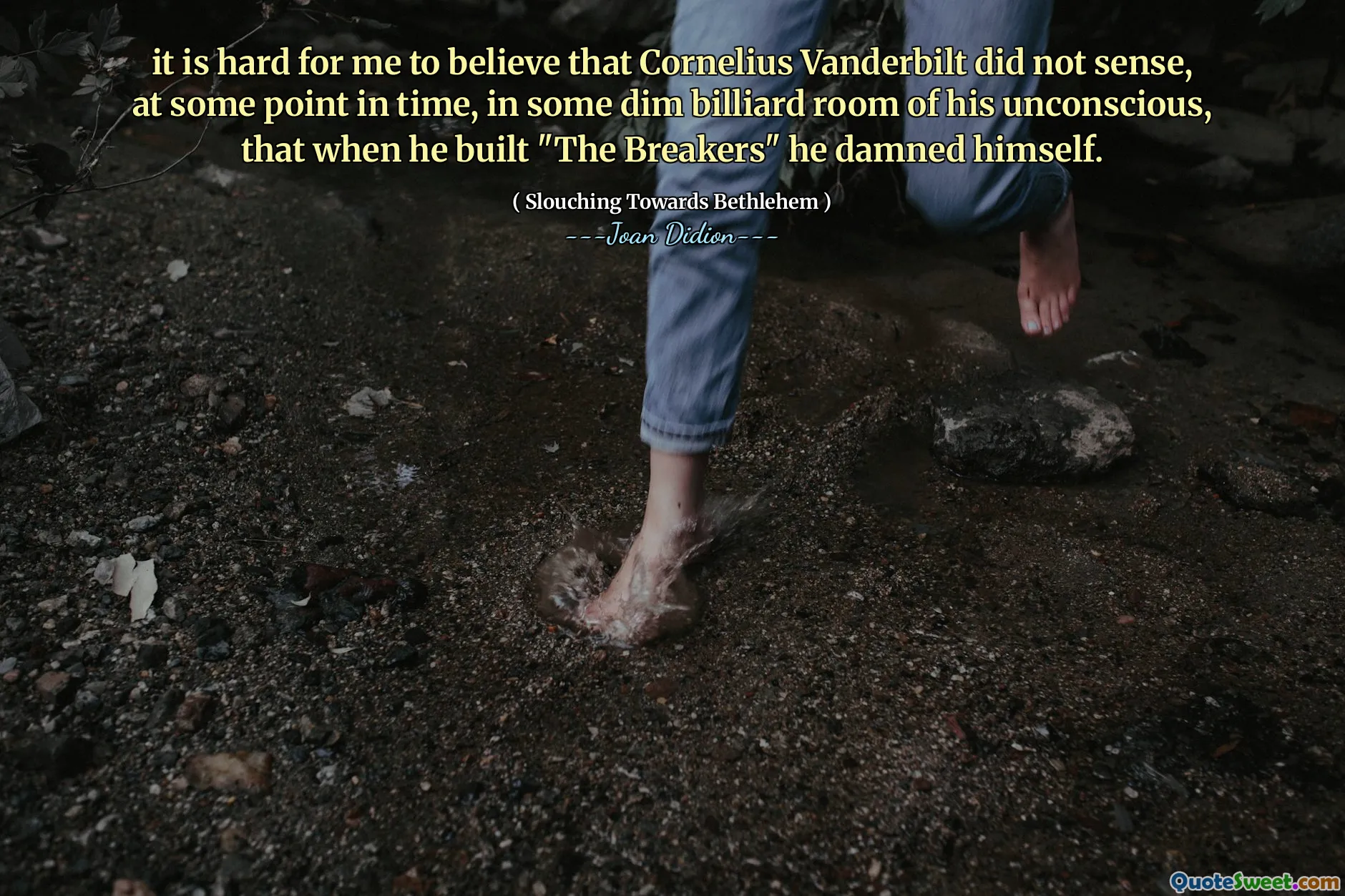
it is hard for me to believe that Cornelius Vanderbilt did not sense, at some point in time, in some dim billiard room of his unconscious, that when he built "The Breakers" he damned himself.
This quote prompts reflection on the profound psychological and moral implications of ambition, wealth, and legacy. Cornelius Vanderbilt, an emblem of industrial wealth and success in the Gilded Age, epitomizes the archetype of a self-made magnate whose accomplishments are often celebrated outwardly. However, the quote suggests an underlying subconscious awareness or guilt that might accompany such relentless pursuit of success. The reference to a "dim billiard room" evokes an intimate, perhaps secret space deep in one's mind, where hidden thoughts and feelings reside. It hints at the idea that even those who seem outwardly fulfilled or powerful may harbor a sense of moral or spiritual conflict. Building "The Breakers," a symbol of opulence and grandeur, is presented as possibly a moral cost, a transaction that perhaps 'damned' the builder, whether metaphorically or spiritually. This internal struggle between material achievement and ethical or emotional well-being remains relevant today. It urges us to consider the costs behind our pursuits and whether success can sometimes come at a hidden expense. The metaphor invites a broader meditation on authenticity versus superficial greatness, and whether true fulfillment requires aligning one's deeds with inner conscience. In a way, it reminds us that ambition, while necessary for growth, can sometimes lead individuals to overlook or suppress internal conflicts, which may manifest as guilt or regret later on. Recognizing such feelings is essential for a holistic understanding of our motivations and the human condition overall.











